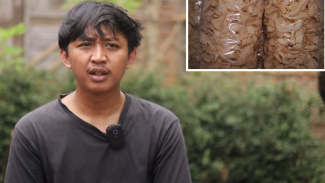A Study Finds that Falling in Love Can Mess the Brain
- dok. pixabay
Jakarta – Have you ever felt that, when in love, your mind is filled with thoughts of the person you love, sometimes causing your thoughts to become chaotic?
Regarding this, scientists have discovered why we can't stop thinking about someone when we're in love.
A study recently published in the journal Behavioral Sciences said that the relationship between the activation system of the mind's behavior and the feelings of romantic love, which makes the mind chaotic and leads us to often think about the person we love.
“We actually know very little about the evolution of romantic love. As a result, every finding that tells us about romantic love's evolution is an important piece of the puzzle that's just been started," the lead researcher Adam Bode said in a statement Tuesday, as quoted from New York Post.
Ilustrasi pasangan jatuh cinta.
- Pixabay/Adina Voicu
Researchers from the University of South Australia, Australian National University and the University of Canberra analyzed responses to questionnaires from 1,556 young adults who identified as being “in love.”
Survey questions explored the participants’ emotional reactions to their partner, their behavior around them and the focus they placed on their loved one — with the researchers finding that our brains react differently when we’re in love.
“We know the role that oxytocin plays in romantic love because we get waves of it circulating throughout our nervous system and bloodstream when we interact with loved ones,” said Phil Kavanagh, a University of Canberra academic.
While it has long been understood that romantic love spurs the release of the so-called “love hormone” responsible for the euphoria one feels when falling in love, this new study found that being in love can cause part of the brain to scramble so your paramour becomes the center of your world.
“The way that loved ones take on special importance is due to oxytocin combining with dopamine, a chemical that our brain releases during romantic love,” Kavanagh explained.
“Essentially, love activates pathways in the brain associated with positive feelings,” he added.
Now better understanding the brain's reaction to being in love, the experts want to focus on the differences between men's and women's approaches to love.
“It's thought that romantic love first emerged some five million years ago after we split from our ancestors, the great apes,” Bode said.
He highlighted that the ancient Greeks “philosophized about it a lot, recognizing it both as an amazing as well as traumatic experience,” and that “the oldest poem ever to be recovered was in fact a love poem dated to around 2000 BC.”
Yet, as do most people, researchers still have many questions about the science of love.





















